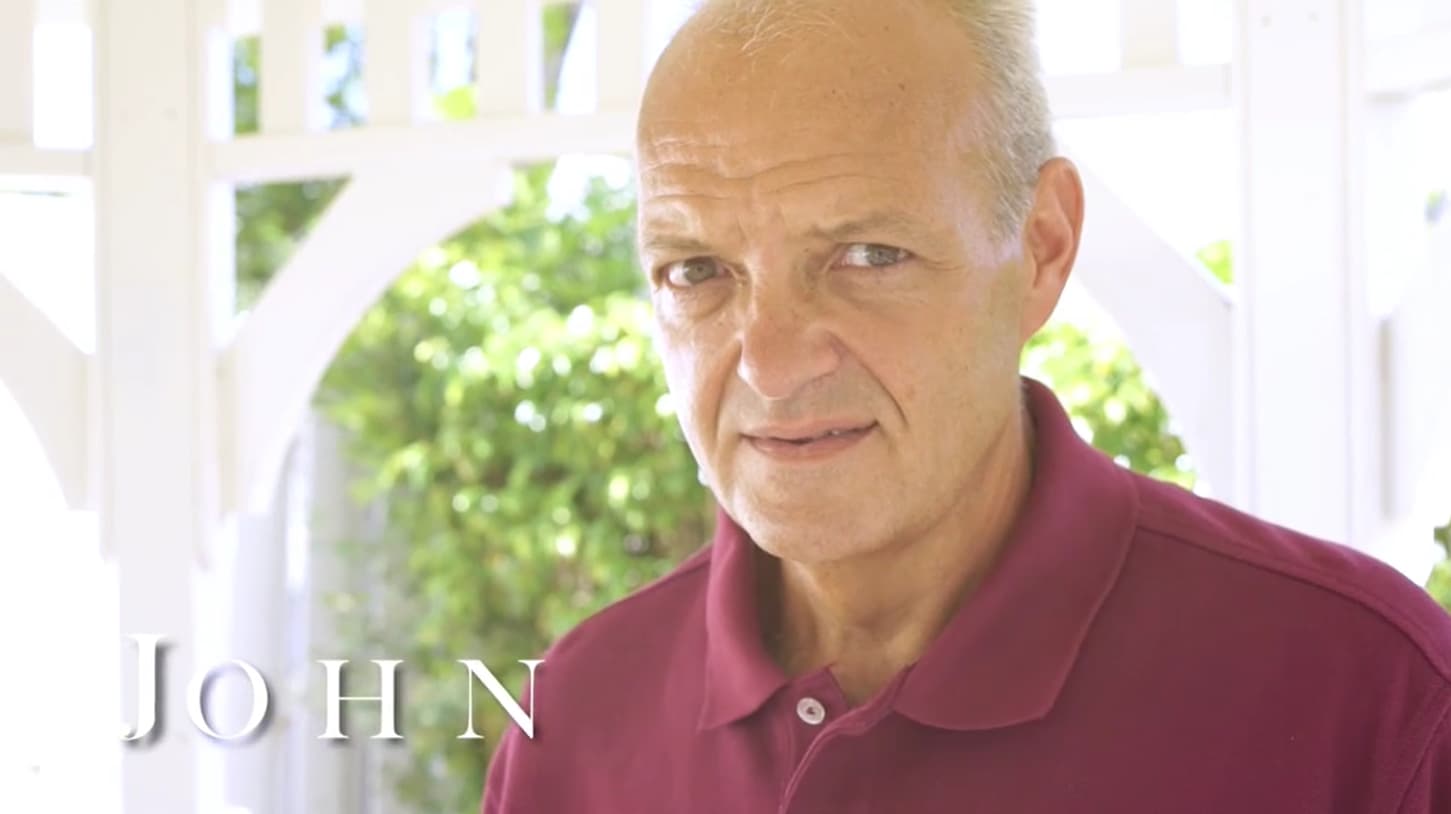Treatment for Alcohol Addiction
In the United States, more than 6 percent of adults struggle with an alcohol use disorder (AUD). Alcohol addiction can be extremely difficult to live with, often interfering with a person’s health, job, social life, and overall happiness. However, with individualized care and the help of a qualified therapist, patients are empowered to overcome AUD and live a life free of addiction. Beachway Therapy Center offers a comprehensive alcohol rehabilitation program in Florida that provides individualized treatment based on a person’s age, gender, and unique circumstances.
Recovery begins with the right professional help. Located in West Palm Beach, Florida, we provide our patients with a safe, calming environment where they are able to focus on healing. Our alcohol rehabilitation programs are designed to provide each individual with the close, personalized care and support they need to detox and heal from their addiction while also empowering them to regain their independence.


What Is Alcohol
Addiction Rehabilitation?
Alcohol addiction rehabilitation is a slow and involved process that begins when an alcohol abuser chooses to stop drinking, makes a goal to abstain for good, and enters a credible rehabilitation center. Following this decision, the individual will go through detoxification therapy to rid their body of the substance and enter into a rehab program to overcome the challenges of withdrawal.
In alcohol rehab, patients work with professional medical and psychiatric staff to create a strategic plan for maintaining sobriety and preventing relapse in the future. People in alcohol rehab will not only overcome their alcohol abuse, but they’ll also make personal changes that are conducive to lifelong abstinence and that will improve their health in the process.
One of the biggest goals of rehab is to determine the underlying factors and psychiatric disorders behind a person’s alcohol abuse. An overlap of disorders is referred to as dual diagnosis, and at Beachway Therapy Center, we specialize in treatments for these co-occurring addiction and mental health disorders. We know that when alcoholism’s cause is identified and eliminated, the reason for the drug or alcohol substance abuse evaporates.
Rehabilitation programs aim to promote continuous abstinence and long-term sobriety. Through extensive therapy and supplemental withdrawal medication, a person can find relief from addiction and fully heal. After rehab treatment, patients are ready to reenter society and continue pursuing relationships as well as professional and educational pursuits with their newfound independence and healthy mindset.

Who Needs Alcohol
Rehabilitation Treatment?
Alcoholism is easy to self-diagnose. By asking a series of simple questions to decide if drinking has turned into full-blown addiction:
-
- Has your drinking habit caused you to lose interest in your hobbies or relationships?
- Do you find it difficult to stop once you’ve started drinking?
- Have others commented on your drinking or encouraged you to seek help?
- Have you experienced withdrawal symptoms after attempting to stop drinking?
- Have you started drinking in an attempt to mask feelings of anxiety or depression?
- Are you struggling to obey local laws due to a compulsion to drink excessively?
- Do you hide your drinking from friends and family members out of shame?
- Does your alcohol usage cause hallucinations or insomnia?
If a person answers “yes” to any of the above questions, they could benefit greatly from treatment in a rehabilitation facility. Even the slightest loss of control can quickly spiral out of hand; recognizing and treating the problem early will prevent it from negatively affecting a person’s life any further.
Those with a true alcoholism disorder may experience extreme symptoms like seizures and hallucinations when they try to quit. This condition is called delirium tremens, and if experienced, one should seek immediate help from a medical professional.

What Types of Alcohol Rehab Are Available?
Deciding on what treatment approach works best for an individual begins with understanding the different levels of care. Deciding on what treatment approach works best for an individual begins with understanding the different levels of care.. Choosing to seek help for alcohol addiction is often a difficult first step down the road to recovery. It’s completely normal for a person to doubt whether or not rehab is necessary or right for them. However, alcoholism and addiction or AUD (alcohol use disorder) – like many other diseases – can be dangerous if left untreated. With extended overconsumption of alcohol, the brain’s chemistry begins to change, causing the body to develop a dependency on alcohol and making it extremely difficult to quit without help. Professional rehabilitation helps arm patients with the education, care, and support needed to overcome AUD. At Beachway Therapy Centers, we provide our patients with a safe and calming environment where they are able to detox and heal from their addiction.
Before a person can make any real progress in their fight against addiction, they must be physically free from alcohol. Medical detox will typically come first in a patient’s treatment plan. This process is to remove dangerous toxins in preparation for treatment. Due to drug withdrawal symptoms’ dangerous nature, detoxification is carried out in a controlled environment under proper medical supervision.
Inpatient alcohol treatment is a little more common than outpatient treatment for serious addictions. It fully immerses patients in a healing environment and has a higher patient success rate. Patients check into a rehab center and will remain there throughout the course of treatment, which can last between one and six months.
Despite its effectiveness, inpatient treatment tends to be more expensive and puts everyday life on hold. However, patients have 24-hour access to medical staff and psychiatric professionals and will be able to focus all their energy on recovering.
Partial hospitalization programs usually require full-time attendance from five to seven days a week and may amount to eight hours a day. This level of care is aimed at addressing the issues that caused addiction to alcohol in an environment of constant support and monitoring. PHP level of care is available after completing the detoxification process (when necessary).
If a person can intervene on their alcoholism in its early stages, outpatient alcohol rehabilitation may suffice. This kind of rehab does not interrupt a person’s daily life. They will attend therapy sessions for alcohol abuse while still going to school or work each day, participating in regular family life, and remaining involved in other routine activities.
Although outpatient alcohol treatment might be more convenient for a person’s schedule and wallet, it may have a lower success rate and requires some commitment. Unlike inpatient treatment, there is no 24/7 support. However, outpatient treatment will allow individuals to fulfill their work or family obligations.
After a patient receives treatment, they will have a positive outlook on life and feel refreshed in body and mind. But if an individual goes straight back to their previous life routine without first learning coping skills to maintain abstinence, they aren’t giving themselves the best chance of lasting success. Aftercare is an important next step in treatment; it helps to instill permanent change.
Aftercare is the part of rehab that teaches a person how to adjust to life at home without relapsing. This stage may be ongoing if a person has a deep-rooted commitment to staying sober throughout their life. Aftercare services are available upon returning home and can take the form of 12-step meetings, support groups, community volunteer opportunities, and other such activities that focus one’s mind.


What to Expect From
an Alcohol Rehab Program
Alcohol addicts may be afraid to seek help for many reasons, but most of the time, it’s due to a fear of the unknown. Not knowing what to expect from a rehab program can be a huge deterrent to recovery. Beachway Therapy Center is very open about the details of our treatment plans. We want all new patients to come prepared knowing what they’re getting into to be motivated to achieve their goal of sobriety and the objectives of inpatient care.

Checking In
The patient’s current health condition is assessed to help build a personalized treatment plan.
Detox and Withdrawal
Monitoring
Once checked in, the process of detox begins. Patient’s health and vitals are closely monitored to minimize risks of complications.
- Co-occurring mental health disorders
- Physical health needs
- Struggling family members
- Case management
- Long-term aftercare planning
Methods of Care
After the detox and withdrawals phase, patients then begin their personalized combination of therapy, including behavioral therapy, family counseling, and medication.
- Behavioral Therapy: Our team of accredited and experienced therapists provide one-on-one counseling to help change and develop new habits.
- Support Groups: Patients receive support from a group of like minded peers who share their same goals and help hold each other accountable.
- Medication: Prescribed as needed, certain medications can be used to help prevent relapse and reduce withdrawal symptoms.
Daily Schedule
Each individual will have his or her own schedule based on their unique recovery path. A typical day for a patient will consist of counseling, therapy, workshops, and the occasional educational program. Patients may also choose to include holistic healing treatments as part of their individual care program by attending yoga classes, meditation sessions, art therapy classes, and other such activities.
Family Involvement
Family is often an important support system in a patient’s full road to recovery. Family members are able to attend counseling sessions with their loved ones to help provide comfort and make the transition to normal life feel less intimidating.
Checking In
A patient’s path to recovery starts as soon as they check-in. Our staff assesses a patient’s current health condition and asks them some in-depth questions about their alcohol use so that we can build a treatment plan. After that, a patient starts the detoxification process to safely and comfortably rid their system of toxins.
Withdrawal Monitoring
The symptoms of alcohol withdrawal tend to be the most extreme during the medical detoxification process. During this time, a patient is susceptible to each of the following, which is why detox should occur in a controlled and highly monitored environment:
-
- Rapid heart rate
- Tremors and shakiness
- Loss of appetite
- Irritability
- Nausea and vomiting
- Seizures
- Insomnia
- Headache
- Disorientation
- Restlessness
- Sweating
- Fatigue
- Mood swings
- Dehydration
- Anxiety
- Depression
The National Library of Medicine reports that these withdrawal symptoms typically set in eight hours after the last drink, but sometimes it takes days to feel the effects. They may appear up to 24 to 72 hours later, and a person will continue to have these symptoms for weeks after. The length of time required for detoxification is unique for each person. Still, with medication and constant support, they will have the relief and help needed to complete this difficult process successfully.

Methods of Care
Once detoxification is complete, patients are ready to enter into any combination of behavioral therapy, family counseling, and medication,
depending on the person’s needs.
Behavioral Therapy
Our behavior-based therapies don’t just resolve the drinking habit. Our accredited and experienced therapists help patients change their habit-causing behaviors through extensive counseling. This type of treatment has been shown to yield a high rate of success.
Support Groups
Support groups, such as Alcoholics Anonymous and 12-step recovery programs, provide alcohol addicts with the support system they need as they battle addiction and connect them with individuals facing the same problems.
Life circumstances
While medication may not sound like a good idea for someone facing addiction, several non-addictive prescription drugs can prevent relapse. Acamprosate, disulfiram, and naltrexone are examples of these drugs. They reduce withdrawal symptoms and cause adverse effects if you try to drink again, ultimately making alcohol undesirable.

Costs and Insurance
The expense of alcohol rehab is another deterrent to recovery, and most people never pursue this option because they assume they won’t be able to afford it. In truth, the cost of rehabilitation programs differ based on what kind of treatments are needed and the length of stay required.
For example, if a person needs inpatient care, they will pay up to $650 per day. The cost will increase if detox is required. Outpatient care costs are calculated every week. Most people can’t afford the out-of-pocket expense, especially considering the loss of income while in treatment. However, before ruling out rehab, it’s a good idea to check with an insurance provider to determine if a subscriber’s benefits can cover some of these services. After all — it’s hard to put a price tag on a happy, healthy, addiction-free future.
The good news is that most health insurance plans will cover a portion of alcohol rehab treatment costs. Most policies offer at least partial coverage. We have insurance specialists on-site to help patients navigate their policies’ details and determine how much they will be responsible for.
An individual might find that they have some wiggle room in their budget to use for rehab now that they aren’t purchasing alcohol every day.
If a person has private insurance, they can check with their carrier to determine which addiction treatments are covered and which levels of care are restricted. Employer-provided health insurance sometimes provides short-term disability coverage and family medical leave (FMLA) to secure employment for those who take a leave of absence from their jobs for treatment. Private plans through an employer tend to have the most comprehensive coverage, but this usually means that a plan will have higher premiums, which are the subscriber’s responsibility.
When considering options, recognize that health is not a wasteful expense. In fact, it’s an investment in a person’s future; putting some money into regaining health pays off in the long run, as an individual discovers their inner strength and learns skills to help them succeed in all of life’s pursuits. With newfound strength, patients can get back to building the life they’ve always wanted for themselves and their families.
Insurance Carriers Information


How Can Alcohol
Rehab Benefit Your Life?
Addiction, a scientific journal, conducted a study on a group of people who received professional rehabilitation care for alcohol addiction, and also on a group of people who didn’t. They found that, three years later, those who were treated professionally had stayed sober with greater ease than those who never turned to professionals for help.
Professional rehabilitation provides patients with several critical aspects to help successfully overcome addiction, such as:
- A safe place to recover
- Alcohol-specific detoxification help
- A treatment program that changes as you learn
- Wellness coaching for your body, mind, and spirit
- Support from your peers
- Relapse prevention education
- Familial involvement
- An aftercare program
- Support from rehab alumni
- Lasting change
Seeking help is never something to be ashamed of, especially with a disease like addiction that cannot be easily beaten alone. Rehabilitation is designed to empower patients so that they can break free of the hold addiction can have on one’s life.
Beachway Therapy Center exists to help people abandon destructive habits and learn coping mechanisms for lifelong change. Our clinic specializes in effective, evidence-based addiction treatment programs tailored to each patient, and we’re confident that full recovery is possible for you. From up-to-date clinical therapies and holistic treatments to top-notch medical care and family-based approaches, we have all the tools you need to succeed and stay sober for life.





